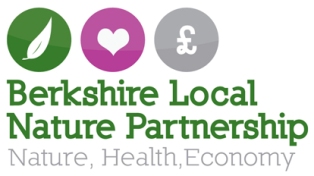"It's been estimated that insect-based pollination, bees pollinating fruit and so on, is worth $190 billion. That's about 8% of the total agricultural output globally. ... But when did a bee actually ever give you an invoice?"
(Pavan Sukhdev, Former Economist, Deutsche Bank, Author of TEEB Report)

Ox-eye daisy with bee by Nigel Smith
The economists among us will know that a thriving economy depends on manufactured, human, social and natural capital. The natural environment is however, often wrongly assumed to have zero economic value. This results in missed opportunities to enhance sustainable growth, and will negatively affect the performance of the economy in the future.
As stated in the Natural Environment White Paper; "economic growth and the natural environment are mutually compatible. Sustainable economic growth relies on services provided by the natural environment, often referred to as 'ecosystem services". Some of these are provided directly, such as food, timber and energy. Others are indirect, such as climate regulation, water purification and the productivity of soil.
The Economics of Ecosystems and Biodiversity study shows that protected natural areas can yield returns many times higher than the cost of their protection. There are multi-million pound opportunities available from greener goods and services, and from markets that protect nature's services. Too many of the benefits we derive from nature are not properly valued. The value of natural capital is not fully captured in the prices customers pay, in the operations of our markets or in the accounts of government or business. When nature is undervalued, bad choices can be made.
In 2012 the Natural Capital Committee (NCC) was set up as an independent advisory body to Government. Its function is to help the Government better understand how the natural environment affects England's economy, and to ensure our 'natural wealth' is managed effectively.
Click here to go to the first report from the NCC; 'The State of Natural Capital'
A Berkshire Case Study - The value of Red Kites in the Chilterns
A recent study was conducted to 'value' red kites in the Chilterns, they found;
- Red Kite presence added £1.53 to the site value for day trips
- A flock of Red Kites added £5.58 to the value of the site for day trips
(Based on willingness to travel (WTT) surveys.)
It cost £360,000 to re-establish Red Kites in the the Chiltern Hills after their extinction
Annual Red Kite Value from tourism is estimated at between £24,403,500 and £89,001,000.
I wonder if Red Kites are mentioned in any accounts...


